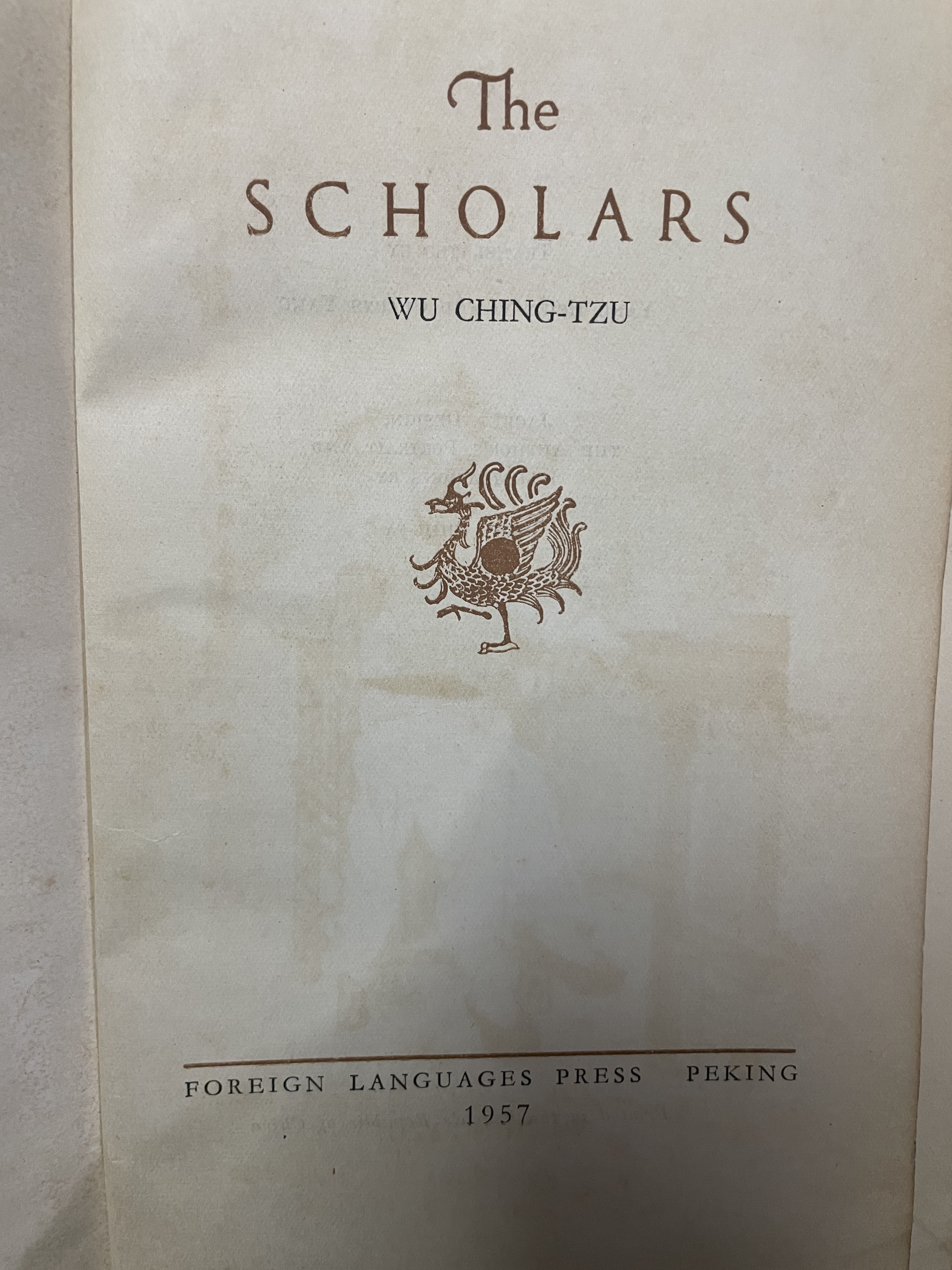The Scholars

About
Summary
Exquisite
TOC
Details
Related
URL
Images
Overview
The Scholars (儒林外史; pinyin: Rúlín Wàishǐ), also translated as The Unofficial History of the Scholars, is a Chinese novel written by Wu Jingzi (吳敬梓) published in 1750 during the Qing dynasty. It is considered one of China's great Classic Chinese Novels. The novel is distinguished by its unusual narrative structure and acerbic wit.
Set primarily in the Ming dynasty, The Scholars satirizes Confucian scholars. The novel comprises loosely connected plotlines with didactic stories that both uphold exemplary Confucian behavior and ridicule over-ambitious scholars and the imperial examination system. The author rejects belief in retribution, promoting naturalistic attitudes over belief in the supernatural; bad characters face no punishment. The characters are intellectuals, possibly based on Wu Jingzi's friends and contemporaries. Though the novel's tone is caustic, the main character Du Shaoqing renovates his family's ancestral temple, suggesting that the author shared Du's belief in Confucianism despite his criticism.
Importance of Book
Satirical Realism: The Scholars is the first work of satiric realism to achieve a disassociation from the religious beliefs of the people.
Critique of the Confucian Civil Service System: The novel critiques the Confucian civil service system with immediacy and humor.
Vernacular Style: The Scholars was one of the first major novels to popularize a vernacular style now called baihua.
Character Development: Wu abandons narrative formulas in favor of autobiographical experiences, descriptive realism, and characters modeled after his friends and relatives.
Influence: The Scholars ranks with Dream of the Red Chamber, Journey to the West, and Water Margin as one of the greatest classic novels of China.
Key Themes
Satire of Confucian Scholars: The novel satirizes the lives of Confucian scholars, especially their obsession with fame and civil service. Characters are portrayed as dogmatic, hypocritical, and corrupt.
Critique of the Civil Service Examination System: Wu Jingzi indirectly criticizes the civil service examination and education system under the Qing dynasty through the scholars and sarcastic voices in the novel.
Confucianism: The novel holds up exemplary Confucian behavior while ridiculing over-ambitious scholars. The main character renovates his family's ancestral temple, suggesting that the author shared Du's belief in the importance of Confucianism.
Rejection of Supernatural Beliefs: Promoting naturalistic attitudes, the author rejects the popular belief in retribution, and bad characters suffer no punishment.
Feminism: Wu Jingzi addresses feminism by portraying Du's kindly treatment of his wife at a time when women were considered inferior to men.
Cultural Significance
The Scholars is culturally significant for its satirical portrayal of Confucian scholars and its critique of the civil service examination system. The novel reflects the intellectual life of the Ming dynasty. It has been described as one of the most difficult to characterize Chinese novels, for it is at once a work of satire, social manners and morals as well as a confessional, historiographical, and philosophical novel. The novel transcends concrete and abstract satire with a dynamic and changing way of viewing the world using innovative techniques.
Effects on Society
Language Reform: Language reformers in the early 20th-century New Culture Movement used the novel to support their view that wenyan was a form of snobbery.
Social Commentary: The novel's mercilessly sardonic exposure of hollow moralizing and ritualized hypocrisy has had an impact on Chinese society.
Literary Influence: The Scholars has influenced Chinese literature and continues to be studied by modern critics.
Promotion of Vernacular Language: The novel's use of vernacular language helped to popularize this style of writing.
Confucianism in Life: The novel promotes the importance of Confucianism in life in spite of its criticism.
Conclusion
The Scholars by Wu Jingzi is a classic Chinese novel that satirizes Confucian scholars and critiques the civil service examination system. Its publication in 1750 marked a significant moment in Chinese literature, and its influence continues to be felt today.
Title
The Scholars
Author
Wu Ching Tzu
Name of Publisher
Foreign Language Press peking
Publish Date
1957
Subject
Its satirical portrayal of the scholar-official class in Qing Dynasty China, and the structure typically reflects its episodic and character-driven nature.
Vintage
1948-2000
Category
Literary
Sub Category
NA
Rarity
Normal
